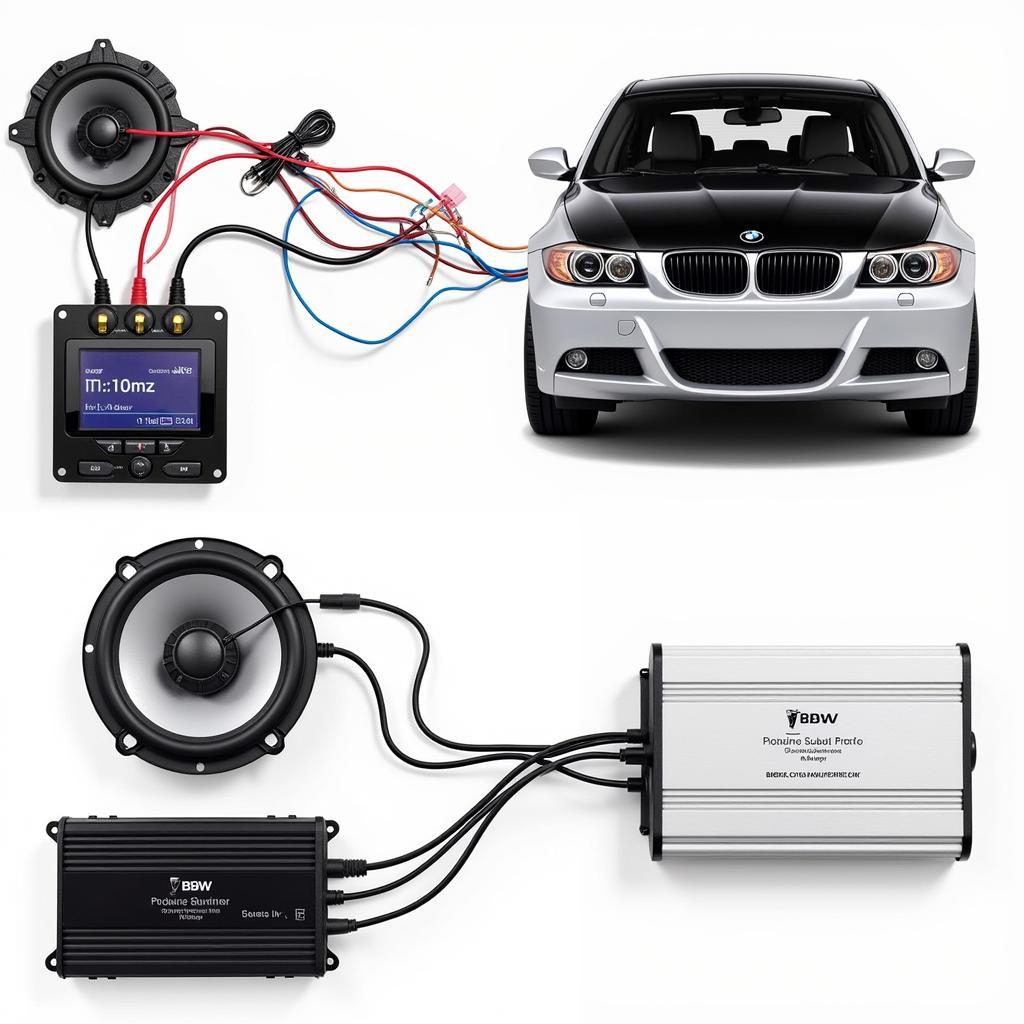A smooth, refined engine sound is a hallmark of the BMW driving experience. However, if your 2014 BMW 320i is making unusual noises, it can be a cause for concern. This article will guide you through the common causes of unusual 2014 BMW 320i engine sounds and how to diagnose and address them effectively.
Understanding the nuances of your 2014 BMW 320i engine sound is crucial for maintaining its performance and longevity. From subtle whines to noticeable knocks, each sound can indicate a specific problem. Ignoring these auditory cues can lead to costly repairs down the road. We’ll explore common issues, diagnostic techniques, and solutions to help you keep your BMW running smoothly. For instance, a whining sound might indicate a problem with the power steering pump, while a knocking sound could suggest an issue with the engine’s internal components. Understanding these sounds and their corresponding problems is the first step towards addressing them efficiently. Let’s delve into the intricacies of your BMW’s engine acoustics. After the opening, you’ll find more detailed explanations and insights into troubleshooting these issues.
Common 2014 BMW 320i Engine Sounds and Their Causes
Several factors can contribute to unusual engine sounds in a 2014 BMW 320i. These range from simple fixes like low oil levels to more complex problems requiring professional attention. Accurate diagnosis is key to resolving the issue effectively and avoiding unnecessary expenses. Here are some common culprits:
- Whining Noise: A high-pitched whining sound, especially when accelerating, could indicate a failing alternator, power steering pump, or a problem with the water pump.
- Knocking or Ticking Noise: This could be a sign of low oil levels, worn-out connecting rod bearings, or issues with the valvetrain components. Ignoring these sounds can lead to severe engine damage.
- Rattling Noise: A rattling sound, particularly during cold starts, could point to a loose heat shield, a faulty timing chain tensioner, or problems with the exhaust system.
- Grinding Noise: A grinding sound when braking might indicate worn brake pads or rotors. If the grinding is coming from the engine, it could signal serious internal damage.
- Hissing Noise: A hissing sound often suggests a vacuum leak, which can affect engine performance and fuel efficiency.
Diagnosing the Problem
Diagnosing the exact cause of an unusual 2014 bmw 320i engine sound can be challenging. A systematic approach is crucial. Here’s a step-by-step guide:
- Identify the Sound: Pay close attention to the type of sound, its frequency, and when it occurs (e.g., during acceleration, idling, or braking).
- Check Fluid Levels: Ensure the engine oil, coolant, and power steering fluid are at the correct levels. Low levels can cause various noises and damage components.
- Visual Inspection: Inspect the engine compartment for any visible signs of damage, leaks, or loose components.
- Use Diagnostic Tools: OBD-II scanners can help identify error codes related to specific engine components. This is particularly useful for diagnosing sensor-related issues.
- Consult a Professional: If you’re unable to pinpoint the cause, consult a qualified BMW technician. They have the expertise and tools to perform a thorough diagnosis. Similar to issues with bmw 320i sound, professional diagnostics can save you time and money in the long run.
Resolving 2014 BMW 320i Engine Sound Issues
Once you’ve identified the cause of the unusual engine sound, you can take appropriate action. Some issues can be resolved with simple DIY fixes, while others require professional intervention. Remember, addressing the problem promptly can prevent further damage and costly repairs.
- Fluid Top-Ups: If low fluid levels are the culprit, top them off with the correct type and quantity.
- Component Replacement: Worn-out components, such as belts, pulleys, or tensioners, may need replacement.
- Repairs: More complex issues, like internal engine damage, require professional repairs.
- Software Updates: In some cases, software updates might be necessary to address certain engine sound issues. Similar to how you might troubleshoot [2014 bmw 320i usb audio not working](https://cardiagtech.shop/2014-bmw-320i-usb-audio-not working/), software updates can sometimes resolve unexpected problems.
Conclusion
Addressing unusual 2014 BMW 320i engine sounds promptly is vital for preserving your vehicle’s performance and longevity. By understanding the various sounds, their potential causes, and the diagnostic process, you can take the necessary steps to resolve the issue effectively. Don’t hesitate to consult a professional if you need assistance. Just as understanding bmw audio formats is important for in-car entertainment, recognizing your engine’s sounds is crucial for its health.
Need assistance? Contact us via Whatsapp: +1 (641) 206-8880, Email: [email protected] or visit us at 276 Reock St, City of Orange, NJ 07050, United States. Our 24/7 customer service team is ready to help.


